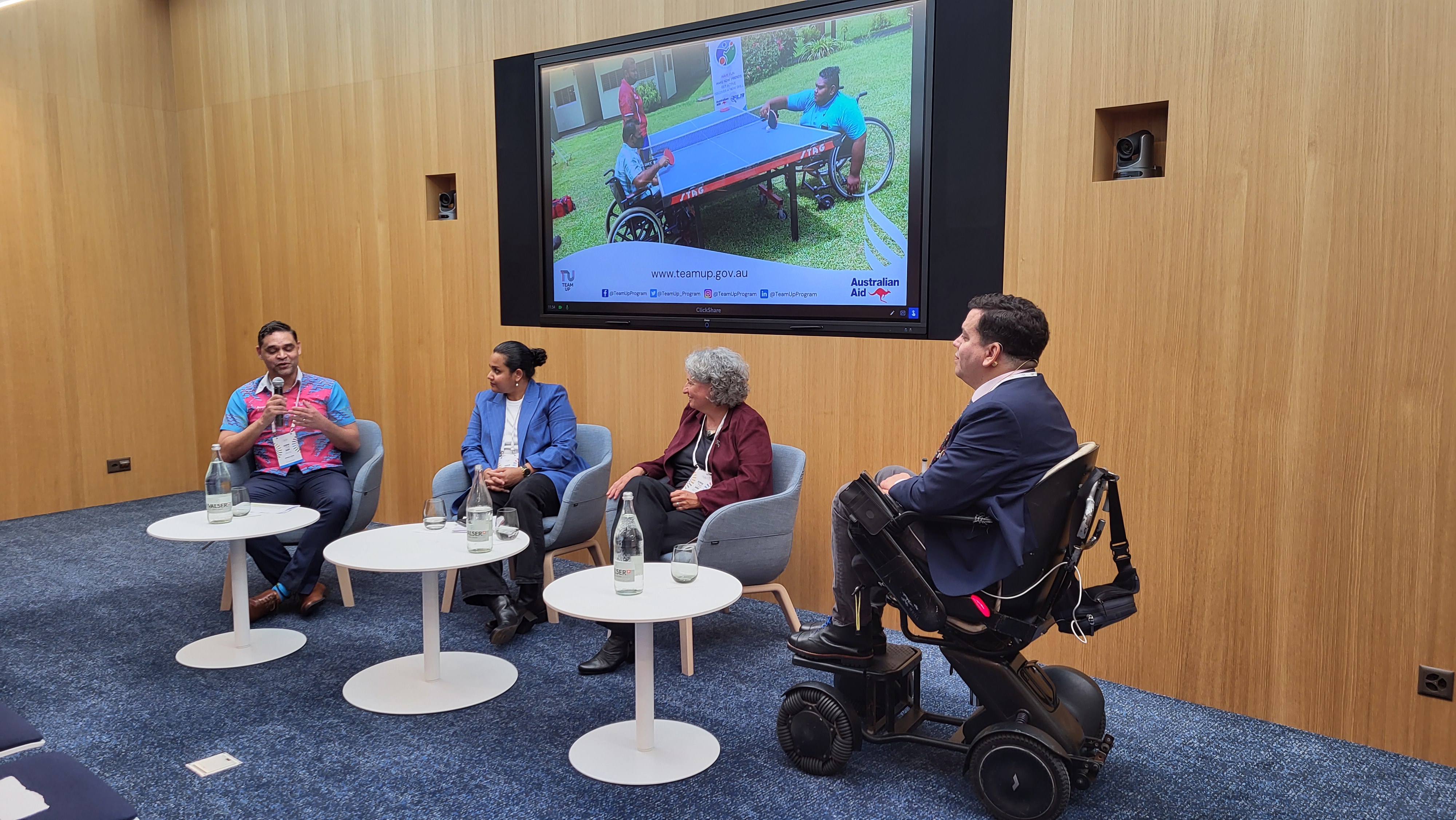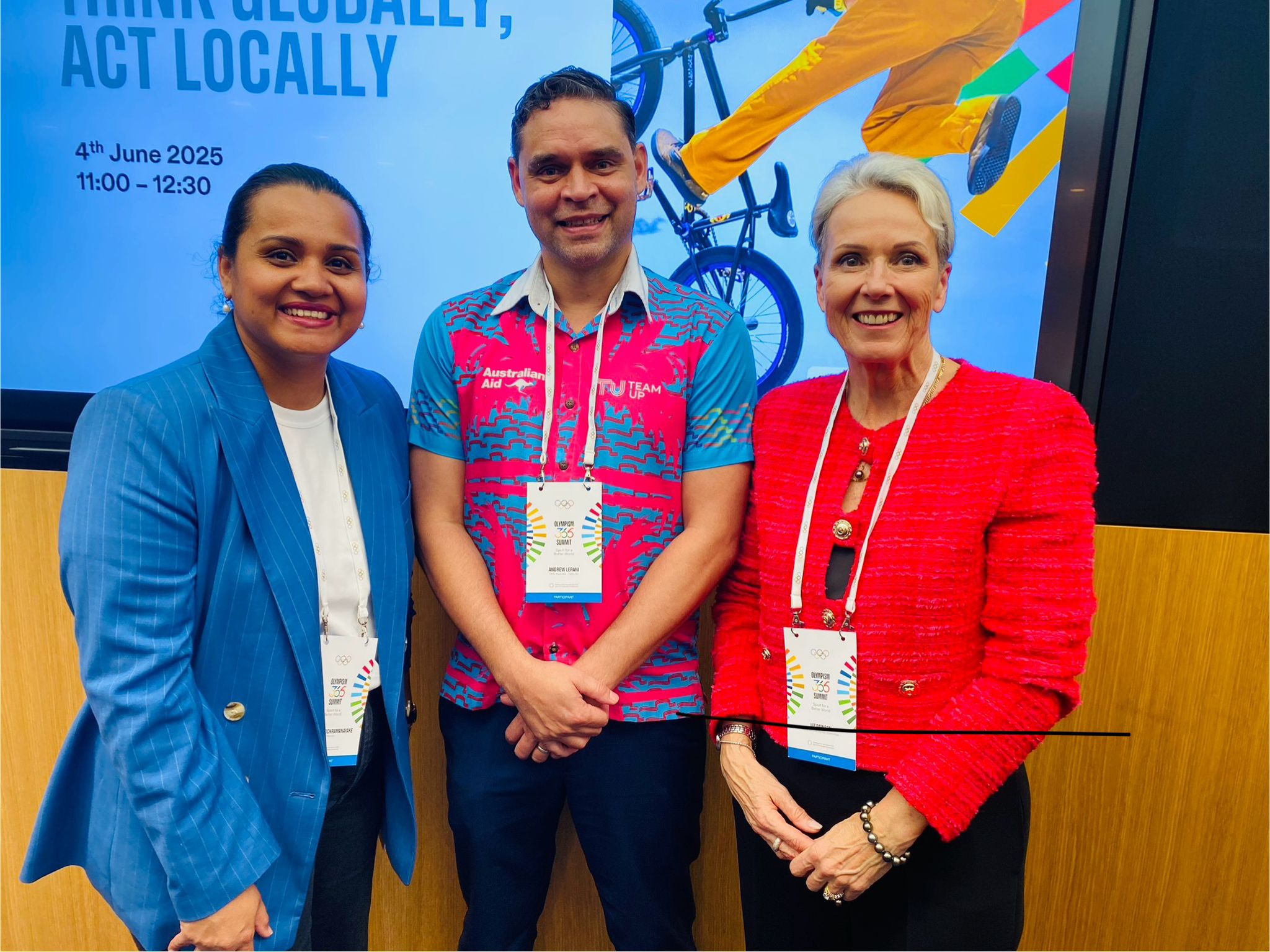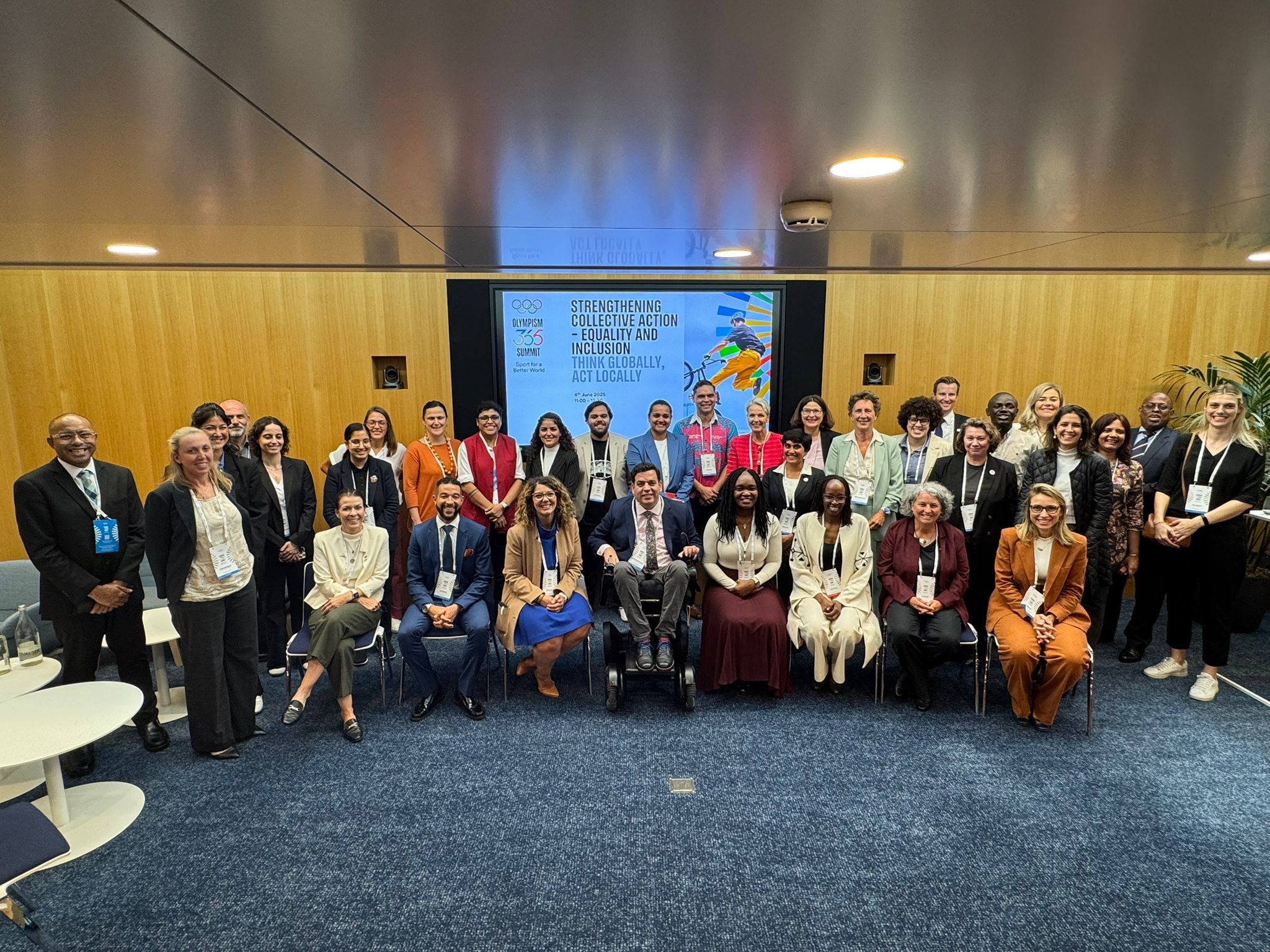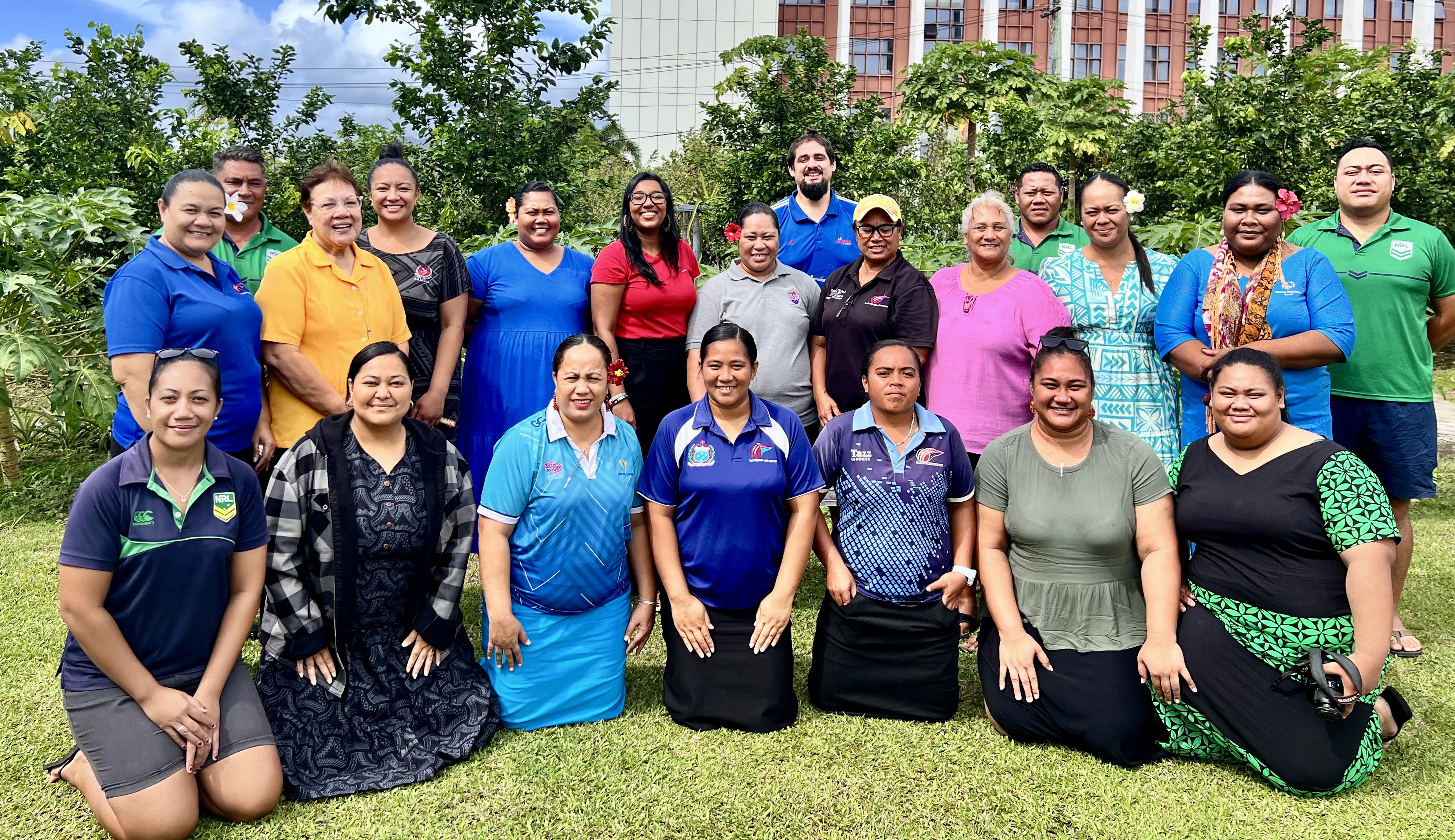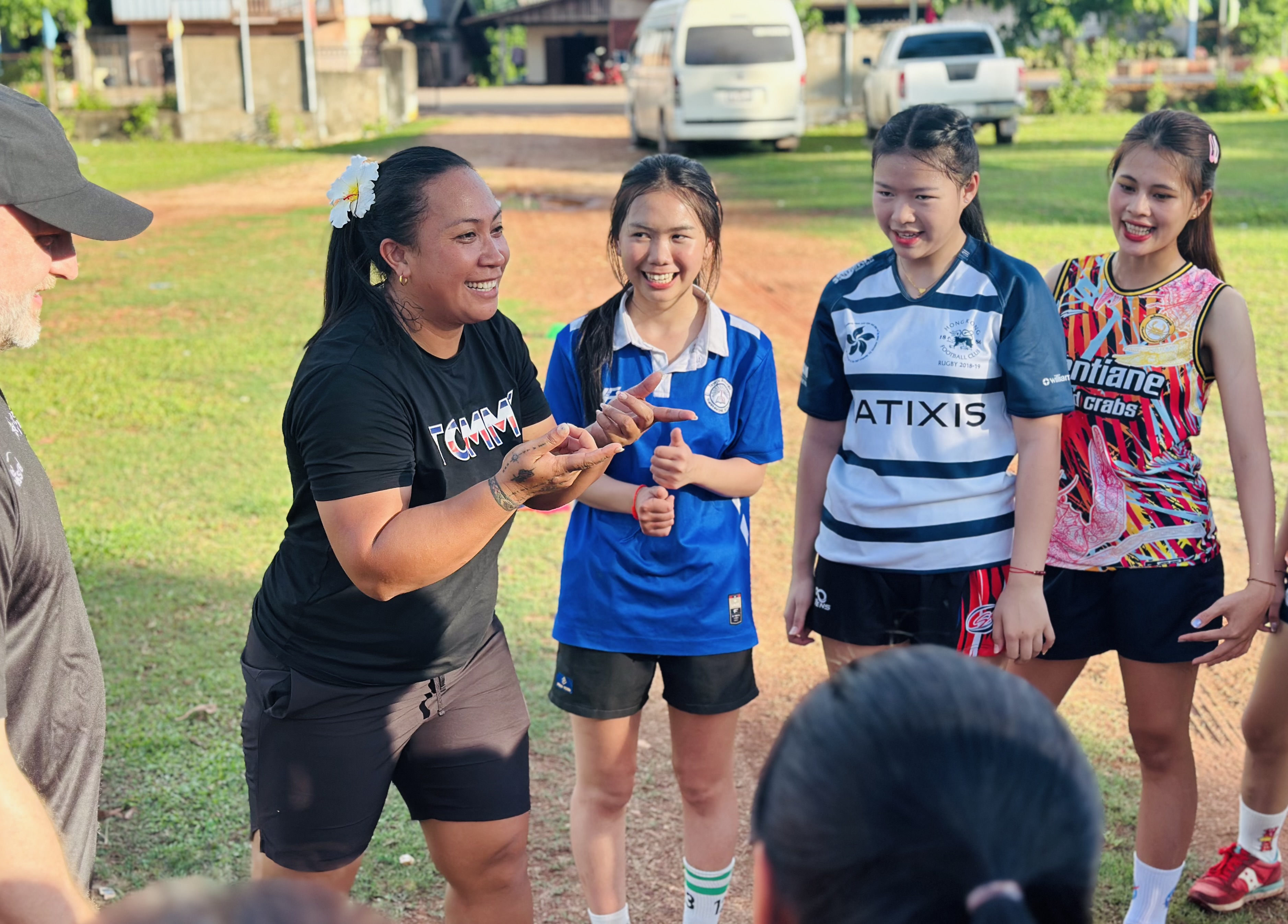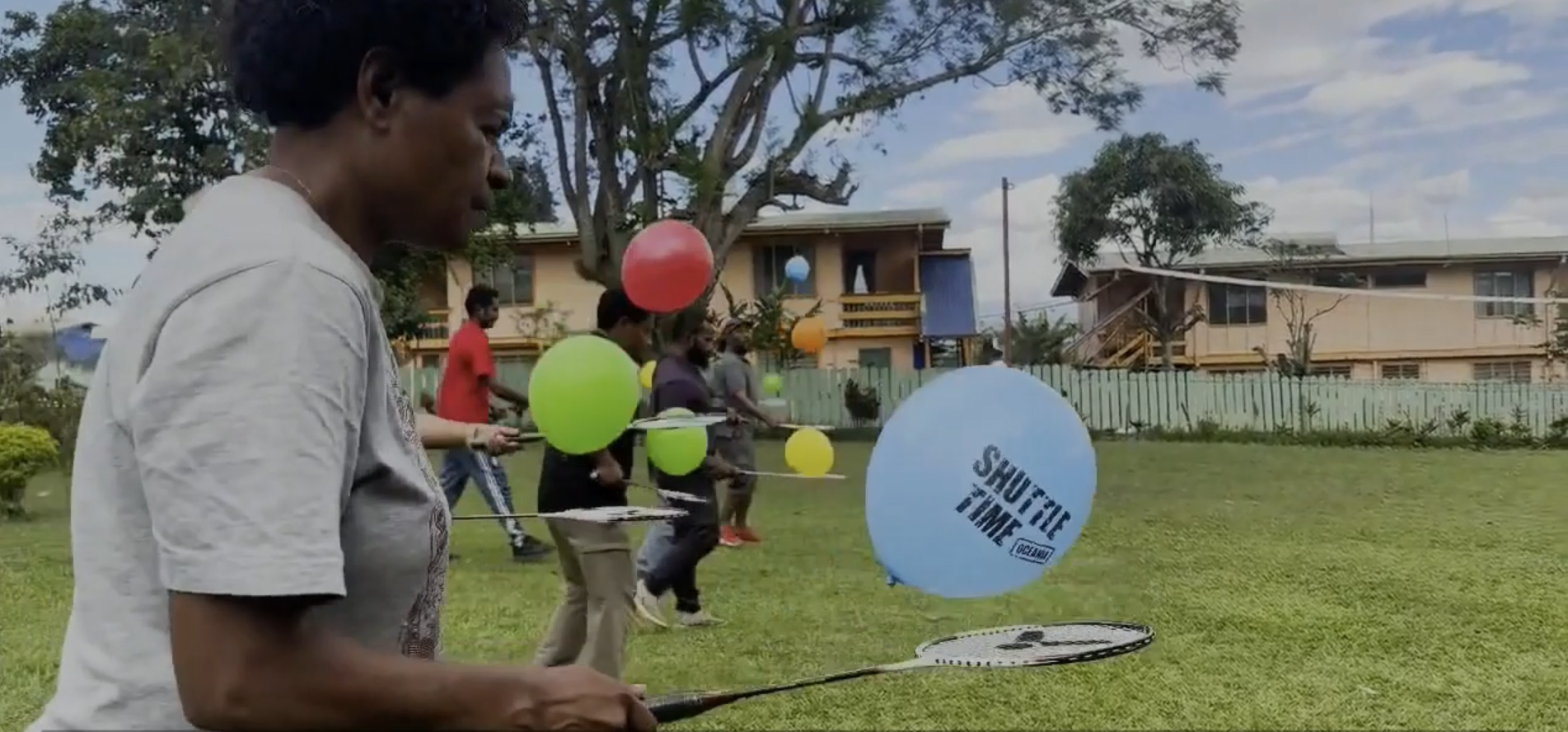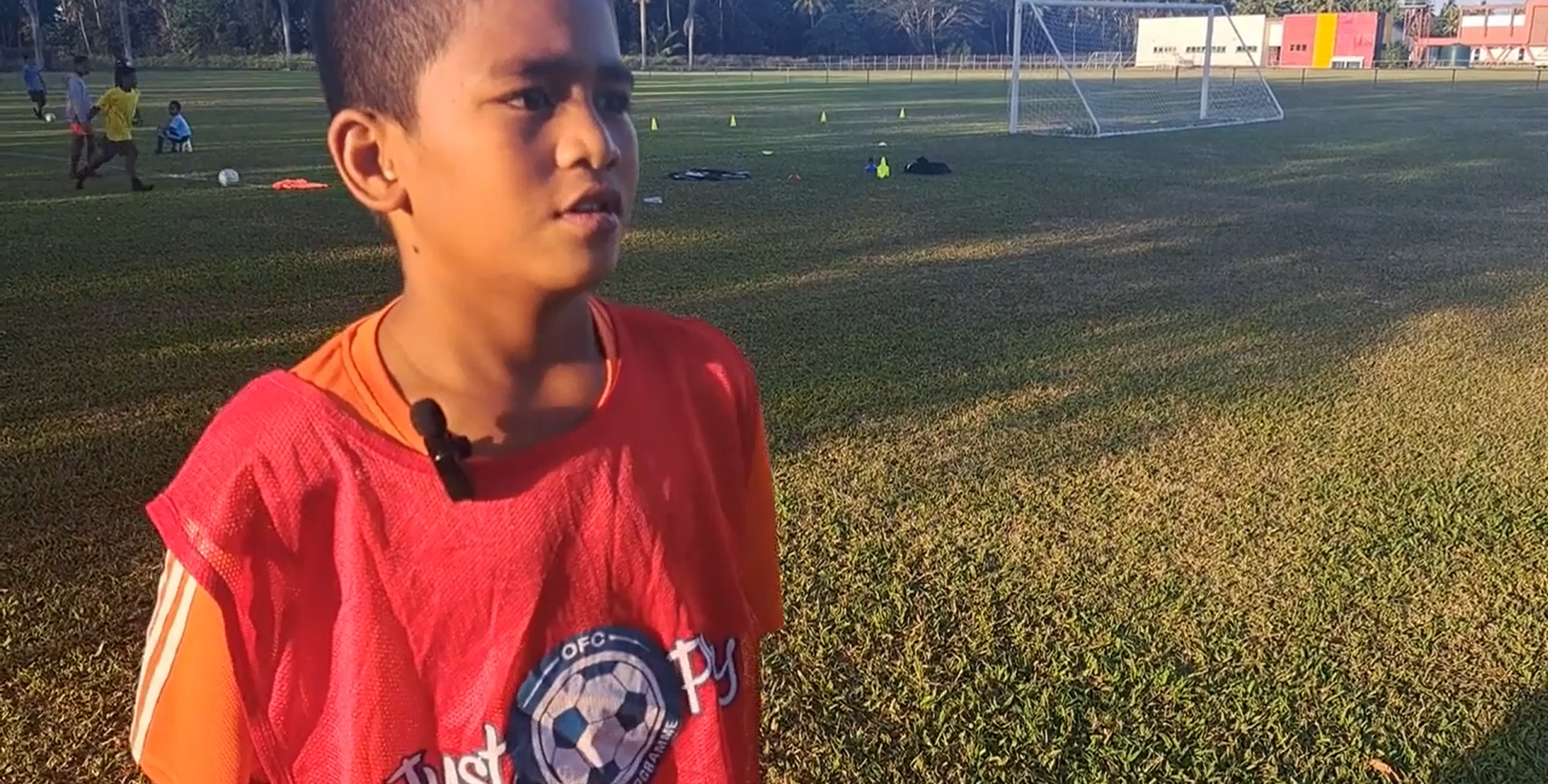The IOC Olympism365 Summit: Sport for a Better World wrapped up in Lausanne, Switzerland, on June 5, delivering a powerful message of global solidarity and collective action through sport. A total of 68 organisations announced 45 new commitments to use sport to advance the UN Sustainable Development Goals (SDGs), with projected initiatives valued at over USD 200 million over the next four years.
Amongst the diverse group of over 250 participants were representatives from the Pacific and the Oceania Impact Network (OIN), a regional alliance working together for a more empowered, inclusive and safe sport ecosystem that contributes to a Pacific region free from violence and discrimination. Initiated by the Oceania National Olympic Committees through its Equity Commission, the Australian Government’s Team Up program, UN Women Fiji Multi-Country Office, and the International Olympic Committee through Olympism365 and Olympic Solidarity, the OIN brings together organisations committed to using sport to drive social change—particularly by advancing gender equality and preventing violence against women and girls across the Pacific.
The Australian Government’s Team Up program, a founding member of the Network, was represented at the Summit by Team Leader Andrew Lepani. The event provided a valuable platform to highlight how sport in the Pacific region is actively contributing to the SDGs.
“Through our sport for development partnerships across Australia and the Pacific, along with initiatives like our Play for Equity Fund and our role in the Oceania Impact Network, we’re strengthening efforts to advance gender equality and disability inclusion. Together, we’re playing our part in using sport to build a better Pacific, and a better world. It’s a collective effort that’s creating meaningful change.
Through 37 programs across seven Pacific Island countries, Team Up continues to transform lives by creating opportunities for women, girls, and people with disabilities to experience the full benefits of sport both on and off the field.”
One such Team Up-supported initiative is Volley4Change in Vanuatu, delivered by the Vanuatu Volleyball Federation (VVF). This inclusive sports program empowers people with disabilities and women through Volleyball in a safe environment, to improve health and engage in and with the community. VVF President and Volley4Change program manager Debbie Masauvakalo, who also attended the Summit, shared:
“As one of six Team Up-supported programs in Vanuatu, we’ve seen how inclusive sport can shift attitudes and unlock potential. For many participants, it begins with simply turning up and trying something new. That courage builds confidence, which then leads to opportunities like representing Vanuatu in para sports, gaining employment, and becoming leaders in their communities. That’s something we’re truly proud of.”
Liz Dawson, Chair of the ONOC Equity Commission, highlighted the value of regional collaboration and global learning at the Summit:
“The opportunity to share knowledge and experiences, and to hear and see what is happening in other parts of the world - the similarities, the differences and what we can learn from each other, has been significant. To bring this back and incorporate into the work of the Commission, of ONOC, of our NOCs and member sports, and the Oceania Impact Network (OIN), for the betterment of enriching lives and communities in and through sport, and for sport to be a safe and inclusive space for all in Oceania, are key dimensions from the Summit.
Further, it’s clear that the Impact Network is a model that has gained respect and is of increasing interest to many in attendance at the Summit - an effective, nimble and responsive example of the capability and capacity of such a “joined-up” approach across agencies and organisations serving common goals.”
As part of the Summit’s key outcomes, the IOC through its Olympism365 strategy has committed a further round of co-investment to the fourth edition of the Play for Equity Fund, which continues to support Pacific-led community projects aimed at advancing gender equality and disability inclusion through sport. IOC co-investment has also been put toward scaling-up the activities of four sport for development programs in the Pacific – Get Into Rugby PLUS in Fiji and Samoa, Smash Down Barriers in Tonga, Just Play in Solomon Islands and Volley4Change in Vanuatu.
IOC Member Auvita Rapilla, Chairperson of the Olympism365 Commission, also acknowledged the Pacific’s leadership in building inclusive sport systems through partnerships:
“The Pacific continues to demonstrate that meaningful partnerships and local leadership are powerful drivers of change. I’m extremely glad to see the Olympic Movement partnering with initiatives like Team Up and the Oceania Impact Network, guided by the IOC’s Olympism365 strategy and its collective action approach. Together we are showing the world how sport can be a platform for inclusion, equality, and community empowerment. Our collective efforts are not just creating access to sport—they’re reshaping systems to ensure that everyone, regardless of gender or ability, can participate safely and with dignity.”
